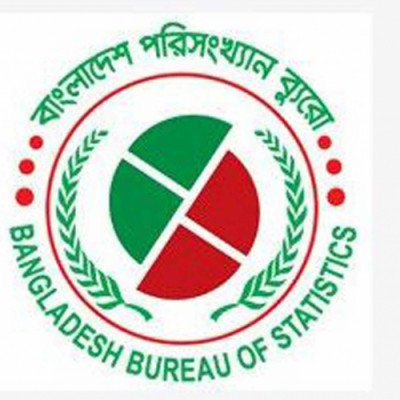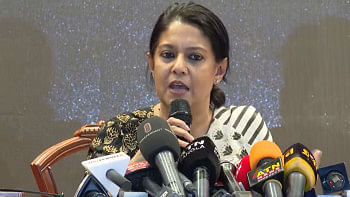Wage hike dwarfed by rising inflation

The wage growth in Bangladesh grew slower than the inflation rate in May, handing a blow to the country's millions of low-paid skilled and unskilled workers already struggling to make ends meet amid the rising cost of living.
According to the Wage Rate Index (WRI) of the Bangladesh Bureau of Statistics, pay rose 6.38 per cent last month compared to a year ago and were up 10 basis points from April's.
Inflation surged to an eight-year high of 7.42 per cent in May, driven by a hike in food costs, underscoring the plight a majority of the population in Bangladesh is currently experiencing, BBS data showed on Sunday.
In Bangladesh, inflation has been rising since October owing to accelerated costs for commodities globally amid lingering supply chain disruptions and the Russia-Ukraine war.
The WRI is intended to measure the movement of wages of low-paid skilled and unskilled workers over time in the main sectors of the economy and is also used to measure the changes in real wages.
In fact, the wage growth has been running below the inflation rate since February, as pent-up demand, abnormally high global commodities prices and supply disruptions sent the price pressure high globally and in Bangladesh. Wage growth has failed to keep pace.
Service sector workers witnessed the highest increase in wages among the three main sectors of the economy in May, rising 6.77 per cent, as high-income groups are increasingly seeking more services following a significant fall in coronavirus infections. It was 6.59 per cent in April.
Industrial workers' pay was up 16 basis points to 6.46 per cent compared to a month ago.
Agriculture labourers saw the slowest growth with their wages rising by 6.27 per cent, up from 6.22 per cent in April.
Although the wage growth rose, it was not enough to offset the consumer prices leaps.
Mustafizur Rahman, a distinguished fellow of the Centre for Policy Dialogue, said food inflation in May was the sharpest since May 2014, owing to a spike in prices in international markets and import-induced inflation caused by the depreciation of the local currency.
According to Rahman, the purchasing power of workers should be calculated by taking into account the price hike of the essentials consumed by workers.
"The prices of essentials have risen significantly compared to what the official inflation figure tells us. So, from that point of view, workers have seen a significant erosion of their purchasing power."
The point-to-point inflation growth in May was higher than the wage hike during the same period, said Nazneen Ahmed, country economist of the United Nations Development Programme Bangladesh,
"That means the real purchasing power of the low-income people has declined during this period. Though the base year for the two estimates is different, this gives an indication of real wage rate decline."
The base year for the Consumer Price Index is 2005-06 while that of the WRI is 2010-11.
Among the sub-sectors, the wage of workers employed in the construction sector was 4.83 per cent last month. It was 4.75 per cent in April.
Division-wise, workers in the Rangpur division saw the biggest raise, taking home 9.39 per cent higher wages in May than a year ago.
The low-paid skilled and unskilled workers in Barishal came second with their pay rising 7.39 per cent.
Their counterparts in the Dhaka division experienced the slowest pace of growth at 5.07 per cent.
The pay of workers grew 6.73 per cent in Chattogram, 6.20 per cent in Khulna, 6.05 per cent in Rajshahi, and 5.83 per cent in Sylhet, BBS data showed.
The floods have added further woes, so the affected people should receive special attention, said CPD's Rahman.
He said the increase of the price of rice by 50 per cent from Tk 10 per kilogramme to Tk 15 under the Trading Corporation of Bangladesh's open market sales operation might hit the poor and the marginalised.
"The social safety net programmes, in terms of allowance and coverage, should be expanded."



 For all latest news, follow The Daily Star's Google News channel.
For all latest news, follow The Daily Star's Google News channel. 



Comments